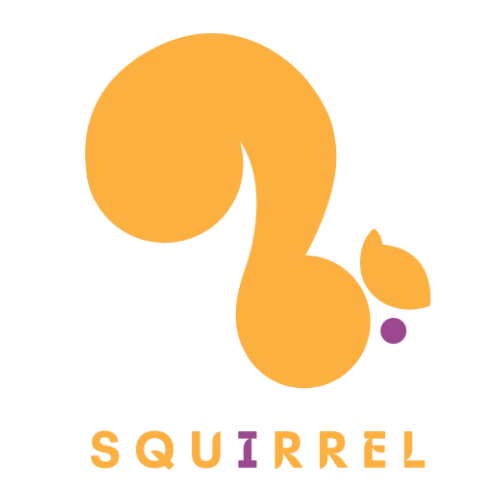Description

Maker AI

Orb Composer
Comprehensive Overview: Maker AI vs Orb Composer
As of my last update, "Maker AI" and "Orb Composer" are artificial intelligence-driven platforms targeting the music composition industry. Here's a comprehensive overview of each:
Maker AI
a) Primary Functions and Target Markets:
- Primary Functions: Maker AI is designed to assist with music creation by leveraging artificial intelligence to generate melodies, harmonies, and entire compositions. Its functions often include style emulation, instrumentation, and arrangement to provide users with a framework for developing complete musical pieces.
- Target Markets: It primarily targets individual musicians, composers, and producers looking for a tool to aid creativity, as well as music production companies and educational institutions interested in integrating AI into their production processes.
b) Market Share and User Base:
- Market Share: While specific market shares and user bases are not publicly disclosed, Maker AI competes with several other AI music generation tools in the industry. Its adoption would depend on factors such as ease of use, quality of AI-generated music, and integration capabilities with other tools.
- User Base: It generally attracts independent musicians and smaller production companies due to its focus on accessibility and creative assistance.
c) Key Differentiating Factors:
- Intuitive Interface: Known for making AI-driven music composition more accessible to non-experts.
- Customization Options: Offers more options for users to input their musical styles and preferences, allowing for greater personalization.
- Integration Capabilities: Emphasizes compatibility with a wide range of digital audio workstations (DAWs).
Orb Composer
a) Primary Functions and Target Markets:
- Primary Functions: Orb Composer uses AI to enable composers to generate music structurally based on defined parameters, such as style, tempo, and instrumentation. It's often used to create pieces in various genres, providing templates and suggestions that can inspire creativity and innovation in composition.
- Target Markets: It targets professional composers, film scorers, and audio production teams who require advanced tools for generating initial compositions or enhancing existing projects.
b) Market Share and User Base:
- Market Share: Orb Composer is considered one of the more advanced tools in AI music production, likely holding a notable position in the segment involving professional composers and educational sectors.
- User Base: Its user base consists largely of professional composers and educators due to its sophisticated capabilities and focus on producing high-quality outputs capable of use in professional settings.
c) Key Differentiating Factors:
- Advanced Composition Tools: Offers more advanced compositional elements, catering to users with experience in music theory and composition.
- Professional Output Quality: Known for generating music that competes with traditional composition methods, often used in industry-level projects.
- Educational Focus: Provides tools and resources designed for understanding and utilizing AI in music theory, making it an attractive tool for educational environments.
Overall Comparison
While both Maker AI and Orb Composer serve the AI-driven music industry, their key differences lie in the level of complexity and user focus. Maker AI leans towards accessibility and ease of use, making it suitable for independent creatives and smaller projects. Conversely, Orb Composer provides more advanced tools and high-quality outputs, favoring professional users with established knowledge in music composition and theory.
Market Positioning: Maker AI aims for broad adoption with its user-friendly approach, while Orb Composer maintains a niche focus on high-end users and professionals seeking depth in composition. As AI music tools are rapidly evolving, the exact market share and user base figures remain fluid and dependent on continued development and shifts in user needs.
Contact Info

Year founded :
Not Available
Not Available
Not Available
Not Available
Not Available

Year founded :
2015
Not Available
Not Available
Spain
Not Available
Feature Similarity Breakdown: Maker AI, Orb Composer
As of my last training data in October 2023, Maker AI and Orb Composer are both tools designed to assist in music and content creation, leveraging artificial intelligence to enhance the creative process. Here’s a breakdown of their features and how they compare:
a) Core Features in Common
-
AI-Driven Composition:
- Both Maker AI and Orb Composer use AI algorithms to assist in creating musical compositions. They help generate melodies, harmonies, and arrangements based on user input or pre-defined styles.
-
User Customization:
- They allow users to input specific parameters such as genre, mood, tempo, and instrumentation to ensure that the generated music aligns with their creative goals.
-
MIDI Integration:
- Both platforms provide MIDI export options, enabling users to integrate AI-generated music into digital audio workstations (DAWs) for further editing and refinement.
-
Style Templates:
- They offer predefined style templates or genres, which users can choose from to guide the type of musical output the AI generates.
-
Real-time Feedback and Iteration:
- Users receive immediate feedback on their compositions, making it easier to make quick adjustments and iterations based on AI suggestions.
b) User Interface Comparison
- Maker AI:
- Typically features a clean, modern interface aimed at broad accessibility, often employing a minimalistic design to ensure ease of navigation. Tooltips and guides are commonly integrated to assist users new to AI-driven composition.
- Orb Composer:
- Orb Composer might offer a more robust interface, geared towards users with a bit more technical expertise in music production. It could include advanced features that provide greater control over composition with detailed panels and options for fine-tuning the music creation process.
c) Unique Features
-
Maker AI:
- Collaboration Tools: Often includes features for real-time collaboration, allowing multiple users to work on a composition simultaneously, which can be beneficial for team projects.
- Generative Text: As Maker AI often integrates beyond music, it may include features for generating text content alongside music, useful for creators in multimedia projects.
-
Orb Composer:
- Advanced Music Theory Integration: Orb Composer typically offers deeper integration with music theory, allowing users to specify complex musical structures and modifications, catering to users who desire more intricate control over their compositions.
- In-depth Instrument Control: The software usually provides detailed control over instrument sounds and arrangements, appealing to experienced musicians or composers.
In summary, while both Maker AI and Orb Composer share several core features designed to aid in music creation through AI, their interfaces and unique offerings cater to slightly different user bases—Maker AI focuses on accessibility and multimedia creation, while Orb Composer leans towards providing advanced control for those with a deeper understanding of music production.
Features

Content Creation
Analytics
Collaboration Tools
Optimization

Collaboration Tools
Customizable Settings
AI-Powered Composition
User-Friendly Interface
Best Fit Use Cases: Maker AI, Orb Composer
Maker AI:
a) For what types of businesses or projects is Maker AI the best choice?
Maker AI is well-suited for a broad range of businesses and projects that need AI-driven creative tools. It can be particularly beneficial for:
-
Marketing Agencies: Maker AI can assist in generating creative content ideas, designing marketing campaigns, and automating repetitive tasks, allowing marketers to focus more on strategy and creativity.
-
Entrepreneurs and Startups: With resources often limited, startups can leverage Maker AI to streamline operations, enhance product development, and optimize customer experiences.
-
E-commerce Businesses: Maker AI can help in personalizing shopping experiences, automating customer service through chatbots, and recommending products, ultimately driving sales and enhancing customer satisfaction.
-
Content Creators: Bloggers, video producers, and social media influencers can use Maker AI for content optimization, including scriptwriting, video editing, and social media post creation.
-
Healthcare Providers: Maker AI can be utilized for predictive analytics, patient monitoring, and even in creating algorithms that help in diagnosing diseases.
b) How do these products cater to different industry verticals or company sizes?
Maker AI is versatile and can be tailored to various industry needs. It scales easily, making it suitable for small startups as well as large enterprises. The adaptability of Maker AI algorithms allows for customization according to specific industry workflows, from retail to healthcare, making it a flexible solution across various verticals.
Orb Composer:
b) In what scenarios would Orb Composer be the preferred option?
Orb Composer is more specialized and is ideal for specific scenarios in the music and audio production fields:
-
Music Composers and Producers: Professionals in music composition can leverage Orb Composer to enhance their creativity, using AI to generate themes, harmonies, and orchestral arrangements.
-
Film and Game Studios: Teams working on soundtracks for films or video games can use Orb Composer to quickly experiment with different musical ideas and styles, saving both time and resources.
-
Educational Institutions: Music schools and educators can employ Orb Composer as a teaching tool for students learning composition and orchestration, allowing for interactive learning and experimentation.
-
Advertising Agencies: For agencies that require background scores or jingles for commercials, Orb Composer provides a cost-effective and quick way to generate music that aligns with brand messaging.
d) How do these products cater to different industry verticals or company sizes?
Orb Composer is primarily focused on the music industry and is best suited for mid to large-scale projects where there is a need for original music composition. While it may be too niche for some smaller businesses unless they're directly involved in music production, it provides substantial value to music-centric industries and educational environments. The tool scales well for individual artists as well as large teams, offering varying complexity and depth in its music creation capabilities depending on the needs of the user.
Pricing

Pricing Not Available

Pricing Not Available
Metrics History
Metrics History
Comparing undefined across companies
Conclusion & Final Verdict: Maker AI vs Orb Composer
To provide a comprehensive conclusion and final verdict for Maker AI and Orb Composer, it's essential to evaluate these products based on their features, usability, pricing, target audience, and the needs of potential users. Here's a detailed analysis:
a) Best Overall Value:
Maker AI generally offers better overall value for users who prioritize simplicity and automation in music creation, particularly those with minimal musical expertise. Its AI-driven capabilities are designed to automatically generate music with less manual input, making it accessible for beginners or those needing quick results without in-depth compositional knowledge.
Orb Composer, on the other hand, provides more value for experienced musicians and composers seeking a tool to enhance their creative process rather than overtaking it. It is not entirely automatic, requiring a certain level of musical understanding to leverage its advanced features. This product is better suited for users who prefer a balance of AI assistance and manual input.
b) Pros and Cons:
Maker AI:
- Pros:
- User-friendly interface with straightforward controls.
- Ideal for quick music generation tasks.
- Requires little to no musical expertise, making it accessible to beginners.
- Cons:
- Limited customization for experienced composers.
- The output may lack depth and originality compared to compositions made with more user input.
- Potential for repetitive or generic results depending on the genre.
Orb Composer:
- Pros:
- Offers high customization for complex music creation.
- Designed for users with a deeper understanding of music theory.
- Can be used as a collaborative creative tool rather than an automated generator.
- Cons:
- Steeper learning curve, not suited for those without basic musical knowledge.
- Requires more time and effort to master.
- Not as efficient for quick, automated music creation tasks.
c) Recommendations:
-
For Beginners or Non-Musicians: If you are a beginner or someone with minimal experience in music composition looking for an easy-to-use tool that provides quick and simple results, Maker AI is likely the best choice. Its automated features and simplicity are beneficial for creating music without extensive skills.
-
For Experienced Musicians and Composers: For individuals with a good grasp of music theory and looking to experiment with AI as a collaborative partner in creativity, Orb Composer provides the tools necessary to enhance your music compositions. It allows for a higher degree of control over the creative process, making it ideal for complex projects.
-
For Budget-Conscious Users: Consider your specific needs before purchasing. If you require comprehensive features with a high level of customization, investing in Orb Composer could be more cost-effective in the long run for serious projects. However, for more straightforward tasks, Maker AI may offer sufficient features at a potentially lower cost.
In conclusion, the decision between Maker AI and Orb Composer largely depends on the user's proficiency in music, the level of creative control desired, and the specific nature of the music projects envisaged. Evaluate your own needs against the products' offerings to make an informed decision.
Add to compare
Add similar companies




